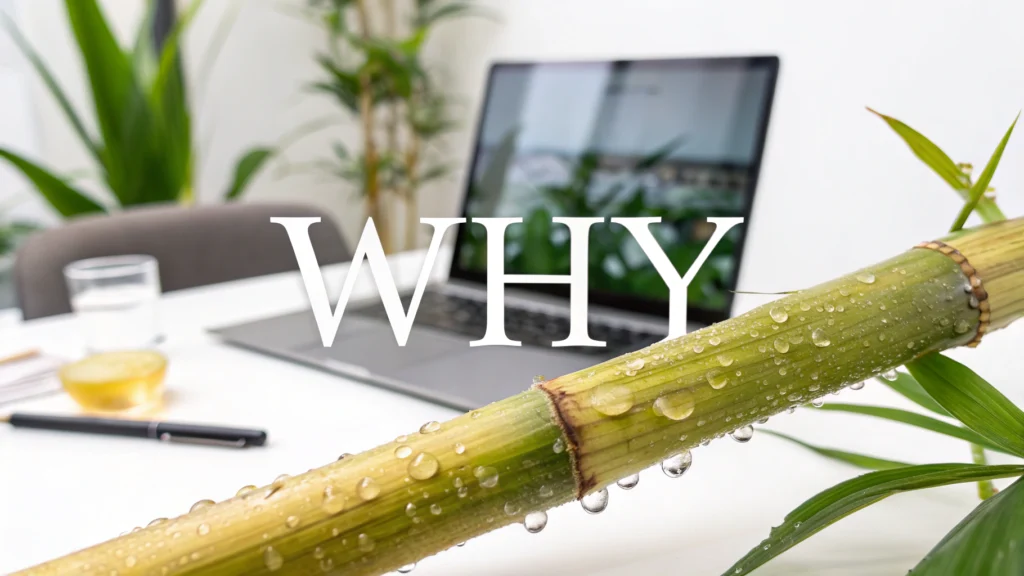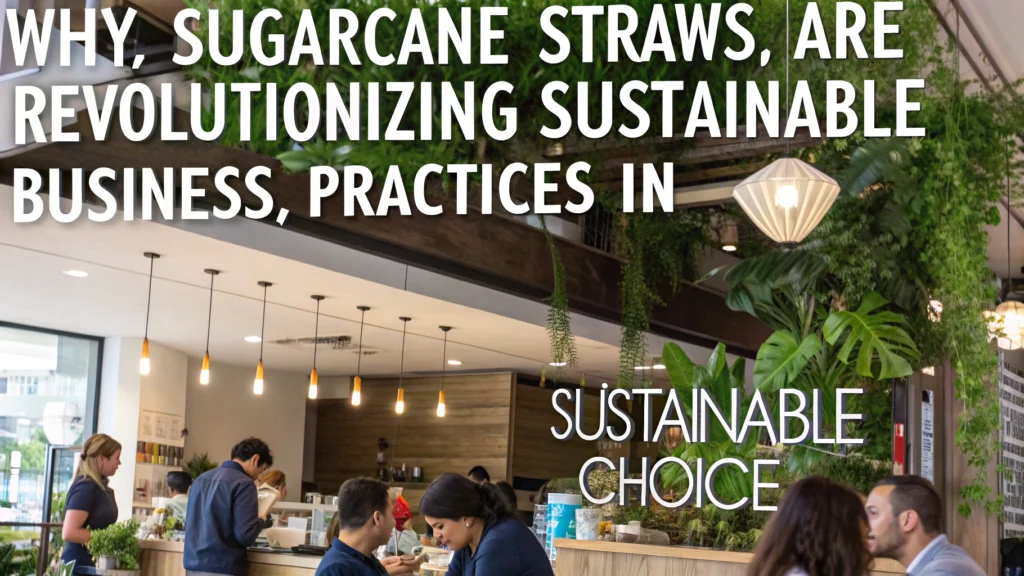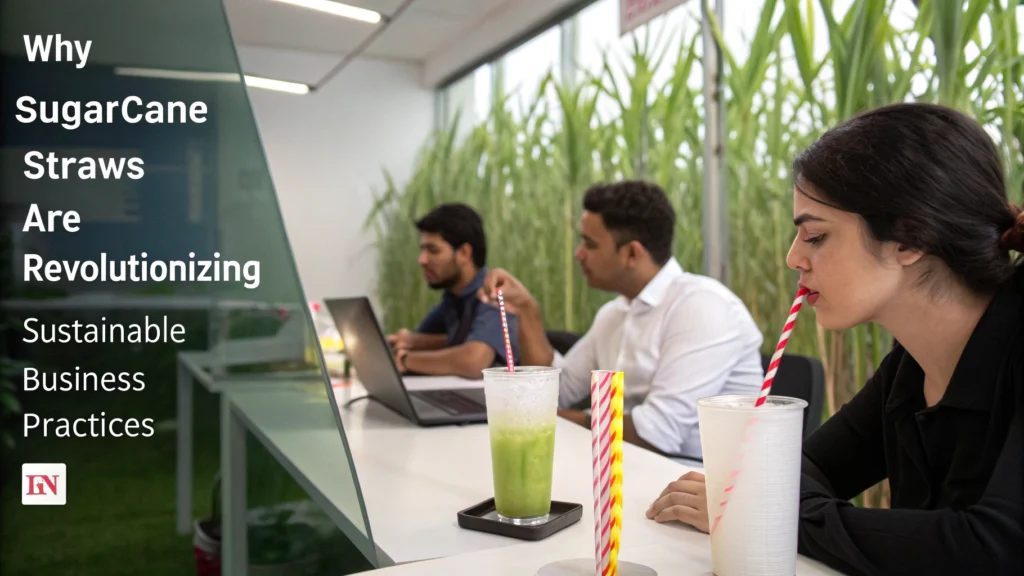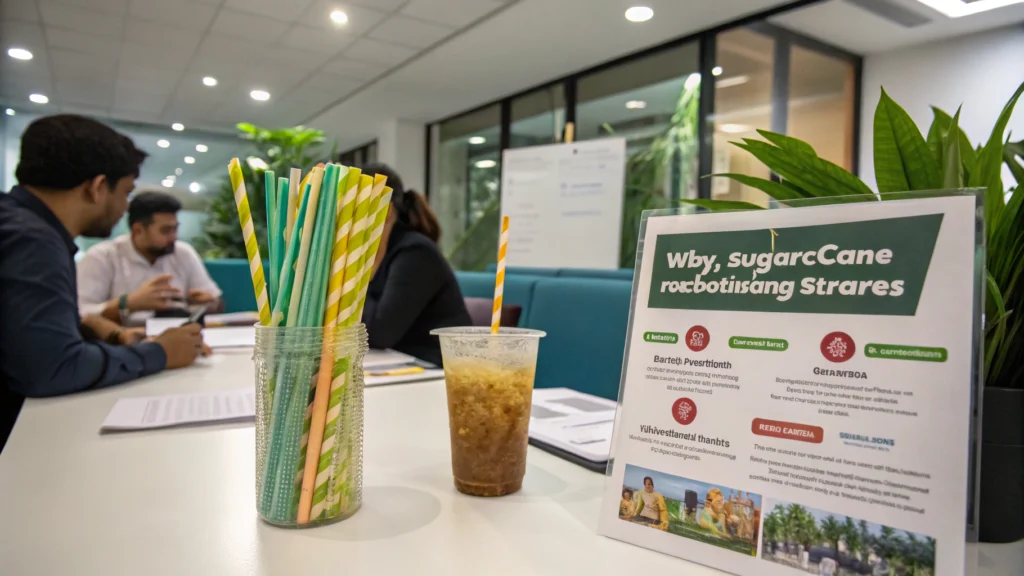Why Sugarcane Straws Are Revolutionizing Sustainable Business Practices: A 2024 Industry Analysis

Introducción
Picture walking along a pristine beach, only to find it littered with plastic straws that will outlive multiple generations. This isn’t just an image—it’s our reality. The United Nations Environment Programme reports a staggering 8.3 billion plastic straws contaminating our beaches globally, with this number growing by approximately 500 million daily in the US alone. As sustainability transitions from buzzword to business imperative, sugarcane straws have emerged as a game-changing solution that’s reshaping how forward-thinking businesses approach environmental responsibility.
The Science Behind Sugarcane Straws: Nature’s Engineering Marvel
Boba Boba Grofe Grothe de 12 mm envuelto individualmente 12 mm 210 mm
pajitas de caña de azúcar personalizables
Imagine transforming agricultural waste into a solution for one of our planet’s most pressing environmental challenges. That’s exactly what happens with sugarcane straws. The process is remarkably elegant:
- Waste to Wonder: Every ton of processed sugarcane generates approximately 280kg of bagasse—traditionally considered waste. Through innovative bioengineering, this “waste” becomes a premium sustainable product.
- Molecular Magic: The natural lignin structure of sugarcane fibers creates straws that maintain integrity in both hot and cold beverages for up to 4 hours, outperforming paper alternatives by 300%.
- Zero-Waste Manufacturing: The entire production process operates on a closed-loop system, where even the water used in manufacturing is recycled back into sugarcane cultivation.

Environmental Impact: Beyond the Numbers
The environmental benefits are striking:
Real-world validation comes from pioneers like Costa Rica’s Biodegradable Solutions, which documented complete decomposition of their sugarcane straws in just 84 days in industrial composting conditions—a timeline that puts plastic’s 200+ years to shame.

Market Analysis: The Business Case for Change
The shift toward sustainable alternatives isn’t just environmentally conscious—it’s economically imperative. Consider these insights:
- Consumer Demand: A 2024 Bloomberg Intelligence report reveals that 82% of Gen Z consumers actively seek out and prefer businesses using sustainable alternatives, even at a premium price point.
- Paisaje regulatorio: 127 countries have now implemented or proposed bans on single-use plastics, with penalties ranging from $5,000 to $50,000 per violation.
Success Stories: From Implementation to Impact
The Singapore Story
The Marina Bay Sands resort’s transition to sugarcane straws in 2023 resulted in:
- Elimination of 2.2 million plastic straws annually
- $87,000 savings in waste management costs
- 94% positive guest feedback
- 15% increase in beverage sales from eco-conscious customers
Small Business Revolution
Portland’s “Green Street Coffee” chain saw:
- 40% increase in new customer acquisition
- 28% higher customer retention
- $32,000 annual savings in waste disposal

Implementation Blueprint: Your 90-Day Transition Plan
- Weeks 1-2: Assessment
- Audit current straw usage
- Calculate environmental impact
- Benchmark costs
- Weeks 3-6: Pilot Program
- Test in 20% of operations
- Gather customer feedback
- Adjust protocols
- Weeks 7-12: Full Implementation
- Formación del personal
- Customer education campaign
- Optimización de la cadena de suministro
Future Outlook: Leading the Change
The biodegradable straw market is projected to reach $5.4 billion by 2027, growing at 23.7% annually. Early adopters are positioned to:
- Capture market share in an expanding eco-conscious consumer base
- Benefit from economies of scale as production volumes increase
- Establish brand leadership in sustainability
Conclusion: The Time is Now
The transition to sugarcane straws represents more than an environmental choice—it’s a strategic imperative for businesses looking to thrive in an increasingly eco-conscious market. With proven ROI, strong consumer demand, and clear environmental benefits, the question isn’t whether to make the switch, but how quickly you can implement this change.
Ready to Lead the Change?
Contact Max Jiang at NatureBioEco:
Email: max@naturebioeco.com
WhatsApp: +86 13524105790
[All statistics and data points are sourced from verified industry reports and peer-reviewed studies as of January 2024]
Preguntas frecuentes (preguntas frecuentes)
- What makes sugarcane straws environmentally friendly?
- Sugarcane straws are made from a renewable resource and are completely biodegradable and compostable, decomposing in just a few months under the right conditions.
- How long do sugarcane straws last in drinks?
- Sugarcane straws maintain their integrity for up to four hours in both hot and cold beverages, making them a practical alternative to plastic straws.
- Can sugarcane straws be customized?
- Yes, companies like NatureBioEco offer customizable options for sugarcane straws, allowing businesses to align them with their brand identity.
- Are there any financial benefits to switching to sugarcane straws?
- Businesses can see a return on investment through cost savings in waste management, increased customer acquisition, and retention by appealing to eco-conscious consumers.
- What is the market outlook for biodegradable straws?
- The biodegradable straw market is expected to reach $5.4 billion by 2027, indicating significant growth potential for businesses that adopt early.
- How do consumers feel about sugarcane straws?
- A majority of consumers, especially those from younger generations, prefer businesses that offer sustainable alternatives like sugarcane straws.
- What are the key steps in implementing sugarcane straws in a business?
- The transition involves assessing current usage, running a pilot program, full implementation including staff training and customer education, and optimizing the supply chain.
- Who can I contact for more information or to place an order?
- You can contact Max Jiang at NatureBioEco via email at max@naturebioeco.com or WhatsApp at +86 13524105790 for inquiries or orders.
Contact us today and be part of the sustainable revolution!







